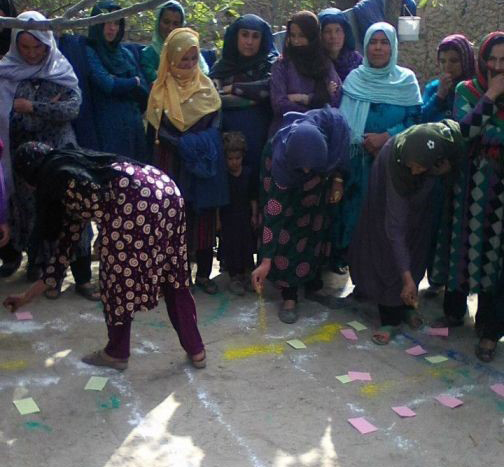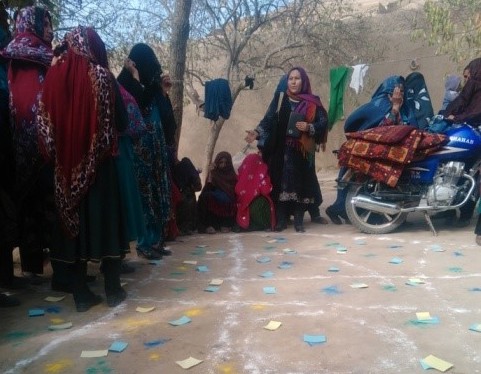Lack of access to toilets is endangering millions of the world’s poorest people. Some 2.4 billion people globally do not have toilets and 946 million – roughly 1 in 8 of the world’s population – defecate in the open. Lack of sanitation and high levels of open defecation greatly increase the prevalence of diarrheal disease, the second leading cause of death among children, and generate birth defects.
Working together towards ‘Open Defecation Free’ status in Badakhshan
In April 2016, ACTED along with nine national and international partners, began work on a UNICEF-sponsored project to end open defecation in Kishim and Shahr-e-Buzorg districts in Badakhshan province, Afghanistan.

This project brings about behavioural change which sees beneficiaries switch to improved sanitation in the form of latrines. Communities are ‘triggered’ to build the latrines independently, without any help from NGOs or government. In the communities in which ACTED works, neighbours have readily assisted each other in sharing the necessary materials, tools and labour. To further boost the project’s impact, ACTED creates Family Health Action Groups, through which local women receive training on hygiene, the management of childhood illnesses, and household sanitation.
‘Triggering’ sessions are a highly effective methodology for behavioural change. The goal of triggering is to incite in community members shame and disgust at the sight and smell of human excrement, its presence in public areas, and an awareness of how others’ excrement can easily find its way into one’s own water and food. After these confrontations, the distaste experienced by attendees provides an immediate impetus for them to construct their own latrines. When ACTED’s field teams went back to visit a village which had recently been triggered, the number of functional latrines had increased fourfold.

“Having a latrine is one of the best solutions to avoid illnesses”
Kishim district stretches out of Badakhshan province in north-eastern Afghanistan. Rural areas like Kishim still experience crippling poverty rates. Ameera, a single mother from Wakilhi Gandumqul village, spoke to ACTED about her children and her concerns for their health. Ameera had recently learned that Kishim experiences some of the highest rates of open defecation in Afghanistan, and took action after attending a triggering session.
Without a latrine, you can be affected by several diseases, therefore I decided to build this latrine at any cost. I have 6 children. If they become sick, I do not have enough money for their medicine. Having a latrine is one of the best solutions to avoid illnesses
Now that the links between traditional behaviours and their negative health impacts have been acknowledged, all 169 of ACTED’s target communities are well on track to becoming ‘Open Defecation Free’ by mid-April 2017. That means thousands more families like Ameera’s will soon see reduced child mortality rates and improved overall health.
Afghanistan introduced Community-led Total Sanitation (CLTS) in 2009 and has recorded positive results so far with Open Defecation Free communities. The Ministry of Rural Rehabilitation and Development together with the Ministry of Public Health lead the way and are preparing a strategy to end open defecation in Afghanistan by 2025.